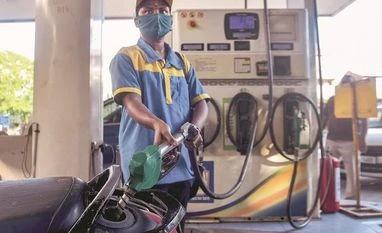The reasons are quite obvious. As can be seen from the chart, the contribution of taxes on petroleum not included in GST rose quite substantially in case of the Centre, at around 20 per cent in 2019-20.
While 40 per cent of this should go to the states, in line with the 14th Finance Commission's recommendations, the Centre has been raising cess on petroleum, which is not shared with states.
On the other hand, the states' share of non-GST taxes on petroleum has been coming down over the years, but still stands at 14.09 per cent in 2019-20. Given that the own tax revenues of the states came down quite substantially from the Budget Estimates, the share would actually be higher than this.
Says Abhishek Rastogi, partner at Khaitan & Co, "The decision for inclusion of petroleum in GST is not simple as the several stakeholders have huge revenue implications and the government will have to maintain the fine balance with respect to revenue collections. Aditya Singhania, partner at Singhania GST Consultancy, says the inclusion does not seem to be a reality at least until the revenue from GST is handsome enough to factor in the current revenue arising from petrol, diesel etc. Currently, crude oil, natural gas, diesel, petrol, and aviation fuel are outside the ambit of GST and they are subject to the levy of Central excise and state specific value added tax. However, domestic LPG and PDS kerosene are already subject to GST under the five per cent rate category.
To read the full story, Subscribe Now at just Rs 249 a month
Already a subscriber? Log in
Subscribe To BS Premium
₹249
Renews automatically
₹1699₹1999
Opt for auto renewal and save Rs. 300 Renews automatically
₹1999
What you get on BS Premium?
-
Unlock 30+ premium stories daily hand-picked by our editors, across devices on browser and app.
-
Pick your 5 favourite companies, get a daily email with all news updates on them.
Full access to our intuitive epaper - clip, save, share articles from any device; newspaper archives from 2006.
Preferential invites to Business Standard events.
Curated newsletters on markets, personal finance, policy & politics, start-ups, technology, and more.
Need More Information - write to us at assist@bsmail.in




)